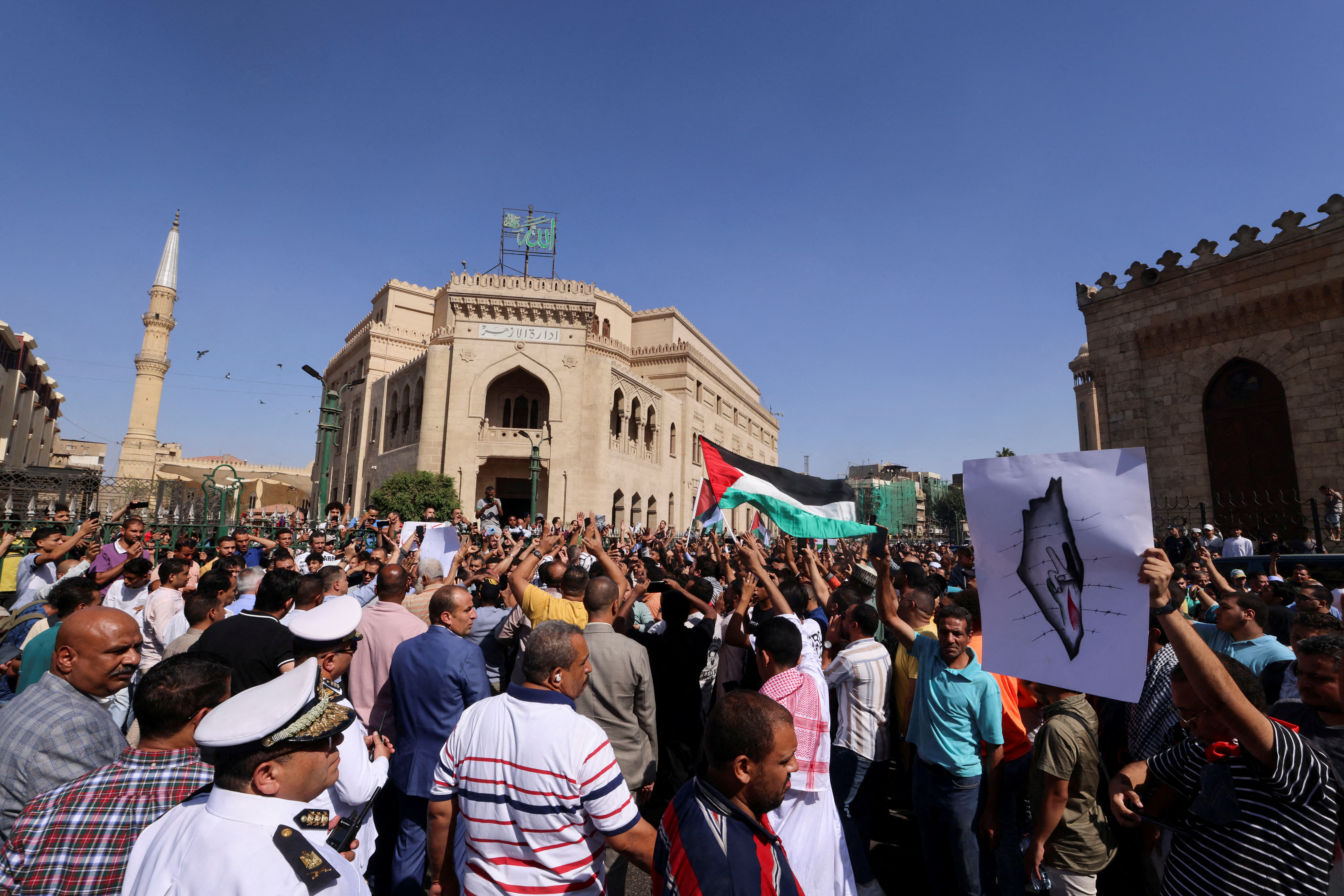Arab leaders condemned Israel’s two-week-old bombardment of Gaza on Saturday and demanded renewed efforts to reach a Middle East peace settlement to end a decades-long cycle of violence between Israelis and Palestinians.
Speaking at a hastily convened gathering dubbed the Cairo Peace Summit, Jordan’s King Abdullah denounced what he termed global silence about Israel’s attacks on the enclave and urged an even-handed approach to the Israeli-Palestinian dispute.
“The message the Arab world is hearing is that Palestinian lives matter less than Israeli ones,” he said, adding he was outraged and grieved by acts of violence waged against innocent civilians in Gaza, the West Bank and Israel.
“The Israeli leadership must realise once and for all that a state can never thrive if it is built on a foundation of injustice … Our message to the Israelis should be that we want a future of peace and security for you and the Palestinians.”
Palestinian President Mahmoud Abbas said Palestinians would not be displaced or driven off their land.
“We won’t leave, we won’t leave,” he told the summit.
Israel has vowed to wipe the Gaza-based Hamas militant group “off the face of the earth” over an assault on southern Israel that killed 1,400 people on Oct. 7, the deadliest Palestinian militant attack in Israeli history.
It has said it told Palestinians to move south within Gaza for their own safety.
The Cairo gathering is trying to find ways to head off a wider regional war, although the assembled Middle Eastern and European leaders are expected to struggle to agree a common position on the conflict between Israel and Hamas militants.
Three diplomats said it was unlikely there would be a joint statement from the gathering because of sensitivities around any calls for a ceasefire, and whether to include mention of Hamas’s attack and Israel’s right to defend itself.
The absence of a top official from Israel’s main ally the United States and some other major Western leaders has cooled expectations for what the hastily-convened event can achieve.
The U.S., which has no ambassador currently assigned to Egypt, is represented by its embassy Charge d’Affaires.
The summit meets as Israel prepares a ground assault on Gaza. More than 4,100 Palestinians have been killed in Israel’s counteroffensive, amid a growing humanitarian crisis in Gaza.
Arab countries have voiced anger at Israel’s unprecedented bombardment and siege of Gaza, home to 2.3 million people.
In his speech Egyptian President Abdel Fattah al-Sisi said his country opposed what he called the displacement of Palestinians into Egypt’s Sinai region.
“Egypt says the solution to the Palestinian issue is not displacement, its only solution is justice and the Palestinians’ access to legitimate rights and living in an independent state.”
Egypt is wary of insecurity near the border with Gaza in northeastern Sinai, where it faced an Islamist insurgency that peaked after 2013 and has now largely been suppressed.
Egypt’s position reflects Arab fears that Palestinians could again flee or be forced from their homes en masse, as they were during the war surrounding Israel’s creation in 1948.
Shortly before the summit opening, trucks loaded with humanitarian aid began entering the Rafah crossing into Gaza, footage from Egyptian state TV showed. Egypt has been trying for days to channel humanitarian relief to Gaza through the crossing, the one access point not controlled by Israel.
Egypt has said little about the aims of the gathering, beyond its presidency’s Oct. 15 statement that the summit would cover recent developments involving the crisis in Gaza and the future of the Palestinian issue.
German Chancellor Olaf Scholz and British Prime Minister Rishi Sunak will not attend, while there has been no official word on whether French President Emmanuel Macron will go.
A senior EU official said on Friday there had been discussions about a common summit declaration but there were still “differences” so it was not clear if there would be a text in the end. European countries have struggled to settle on a united approach to the crisis, beyond condemning Hamas’s attack, after days of confusion and mixed messaging.







Click here to change your cookie preferences